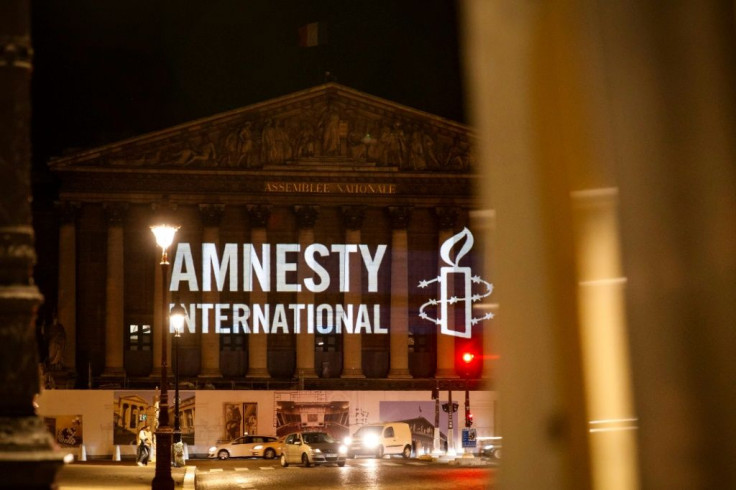Mideast States Made 'Chilling' Use Of Executions Amid Pandemic: Amnesty
States in the Middle East made "ruthless and chilling" use of the death penalty in 2020 despite the Covid-19 pandemic, led by Iran which employed capital punishment as a method of political repression and Egypt which tripled executions, Amnesty International said Wednesday.
The London-based rights group said it recorded 483 executions in 18 countries worldwide last year, a decrease of 26 percent from the 657 recorded in 2019 and the lowest number it has registered in the past decade.
Amnesty's report does not include China, which it said remains the "world's leading executioner," with thousands put to death each year but the data classified as a "state secret".
"The year 2020 was marked by a further global decline in the use of the death penalty, and while the Covid-19 pandemic contributed to reductions in the number of executions carried out and death sentences imposed, it also exacerbated the inherent cruelty of this punishment," Amnesty said.
Excluding China, its report found that 88 percent of all recorded executions took place in just four countries in the Middle East -- Iran, Egypt, Iraq and Saudi Arabia.
"Throughout 2020 countries from the Middle East and North Africa displayed a ruthless and chilling persistence in carrying out plans to put people to death even during a year when most of the world was focussed on protecting people's lives from a deadly virus," said Heba Morayef, Amnesty's director for the Middle East and North Africa.
The number of executions recorded in the Middle East fell 25 percent, driven by a 85 percent drop in recorded executions in Saudi Arabia and a reduction in executions by more than half in Iraq.
However the report noted "a significant spike" in recorded executions in Egypt, which saw a more than threefold rise to 107 last year from 32 in 2019.
There was a spate of executions in Egypt in October and November as at least 57 people were executed in the wake of an incident at a prison south of Cairo in September, when Amnesty said four prisoners on death row and four members of security forces were killed.

Iran executed at least 246 people, retaining its place as the most prolific user of capital punishment in the region and the second worldwide after China, despite the effects of 2017 amendments reducing the penalties for drug-related offences.
Amnesty said that in Iran "the death penalty was increasingly used as a weapon of political repression against dissidents, protesters and members of ethnic minority groups."
Some of those executed were members of Iran's Kurdish and Baluchi minorities, it said.
Meanwhile, Iranian courts continued to order the death penalty for people who were below the age of 18 at the time of the crime in defiance of international law, it said, recording three such cases.
While almost all executions in Iran were carried out by hanging -- and none by stoning, though the practice remains allowed under the penal code -- for the first time since the 1980s shooting was recorded as a method of execution, it said.
Amnesty said the 17 executions in the United States last year were the fewest in almost 30 years, despite the resumption of federal executions by the former administration of Donald Trump after a 17-year hiatus, which saw 10 men executed over just five and a half months.
While it is possible a reduction in the use of the death penalty in China has taken place in recent years, Amnesty said it believed that thousands of people were still executed in the country in 2020.
sjw/js/txw





















